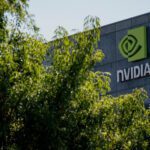Alphabet Inc. (NASDAQ: GOOG, GOOGL) reported a 12% increase in consolidated revenues to $90.2 billion for the first quarter ended March 31, 2025, exceeding market expectations.
The Google parent company saw substantial growth across its business segments, with Google Cloud leading the charge at 28% growth. Net income surged 46% to $34.5 billion, resulting in diluted earnings per share of $2.81, up 49% year-over-year.
The Mountain View, California-based tech giant demonstrated strong momentum across all major revenue segments, with Google Search and other YouTube ads, Google subscriptions, platforms, and devices, as well as Google Cloud, each delivering double-digit growth rates.
When adjusting for currency fluctuations, Alphabet’s revenue growth was even more impressive at 14% year-over-year in constant currency.
“We’re pleased with our strong Q1 results, which reflect healthy growth and momentum across the business,” said Sundar Pichai, CEO of Alphabet. “Underpinning this growth is our unique full stack approach to AI.”
Google Services, which includes the company’s core advertising business, subscription services, and hardware devices, reported a 10% revenue increase to $77.3 billion.
Within this segment, Google Search and other revenue grew to $50.7 billion, up from $46.2 billion in the same quarter last year. YouTube advertising revenue increased by 10.3% to $8.9 billion, while Google Network revenue slightly declined to $7.3 billion.
The company’s cloud division continued its impressive performance with Google Cloud revenues increasing 28% to $12.3 billion.
This growth was primarily driven by Google Cloud Platform (GCP) across core products, AI Infrastructure, and Generative AI Solutions. The cloud segment’s operating income more than doubled to $2.2 billion, representing a significant improvement from $900 million in Q1 2024.
Pichai highlighted AI innovations as a key driver of the company’s growth: “This quarter was super exciting as we rolled out Gemini 2.5, our most intelligent AI model, which is achieving breakthroughs in performance and is an extraordinary foundation for our future innovation.
The CEO also noted that Search saw continued strong growth, boosted by features like AI Overviews, which now has 1.5 billion users per month. The company’s subscription business showed robust performance, with paid subscriptions exceeding 270 million, driven primarily by YouTube and Google One.
Operating income for the quarter increased 20% to $30.6 billion, with operating margin expanding by 2 percentage points to 34%. This improvement reflects the company’s focus on operational efficiency while continuing to invest in strategic growth areas.
Other income and expense showed a significant increase to $11.2 billion for the quarter, including an $8.0 billion unrealised gain on non-marketable equity securities related to the company’s investment in a private company. This gain contributed substantially to the overall increase in net income.
Alphabet’s capital expenditures rose significantly to $17.2 billion, up from $12.0 billion in the same quarter last year, as the company continues to invest heavily in infrastructure to support its AI initiatives and cloud business growth.
The company’s workforce slightly increased to 185,719 employees, up from 180,895 in the first quarter of 2024, showing measured growth in headcount compared to revenue expansion.
Alphabet also announced a 5% increase to its quarterly dividend, resulting in a cash dividend of $0.21 per share, payable on June 16, 2025, to stockholders of record as of June 9, 2025. Additionally, the company’s Board of Directors authorised the repurchase of up to an additional $70.0 billion of its Class A and Class C shares.
By geographic region, the United States remained Alphabet’s largest market, generating $44.0 billion in revenue, a 13% increase year-over-year. The Europe, Middle East, and Africa (EMEA) region contributed $25.9 billion, while the Asia-Pacific region accounted for $14.9 billion in revenue.
The company’s free cash flow for the trailing twelve months ending March 31, 2025, totalled $74.9 billion, with $19.0 billion generated in the first quarter alone, demonstrating Alphabet’s continued ability to convert revenue growth into cash.
Opinion
Alphabet’s Q1 2025 results showcase impressive growth across multiple fronts, but several aspects warrant deeper scrutiny. The 28% growth in Google Cloud revenue is certainly remarkable, yet the market will question whether this pace is sustainable given the intense competition in the cloud space.
While the operating margin expansion to 34% demonstrates operational discipline, the significant $8 billion unrealised gain from a private company investment masks the true operational performance metrics, as this one-time gain substantially inflated the bottom line.
The company’s increasing capital expenditures, which jumped from $12 billion to $17.2 billion year-over-year, indicate heavy infrastructure investment, likely related to AI capabilities. While necessary for future growth, these investments will pressure free cash flow in the near term and raise questions about return on investment timelines.
Alphabet’s AI initiatives appear to be gaining traction with features like AI Overviews reaching 1.5 billion monthly users, but the company must demonstrate how these innovations translate directly to revenue growth beyond general engagement metrics.
The modest 10.3% growth in YouTube advertising revenue suggests potential challenges in fully monetising video content in an increasingly competitive digital advertising landscape.
The slight decrease in Google Network revenue points to potential vulnerabilities in this segment, which could indicate shifting advertiser preferences or market share losses to competitors.
Additionally, while subscription growth is impressive at 270 million paid users, the company provided limited insight into subscription revenue contribution margins compared to its traditional advertising business.
Alphabet’s continued focus on share repurchases and dividend increases, while rewarding shareholders, raises questions about whether these capital allocation decisions offer the best long-term value compared to reinvesting more aggressively in emerging technologies or strategic acquisitions.
As AI development costs escalate industry-wide, Alphabet’s spending on “certain AI-focused shared R&D activities” at the corporate level warrants close monitoring for efficiency and output relative to competitors.
The company’s approach to AI appears to be yielding results, but investors should question whether Alphabet is moving quickly enough to capitalise on the AI revolution, given the rapid pace of innovation across the tech sector.
References: Alphabet Investor Relations.









